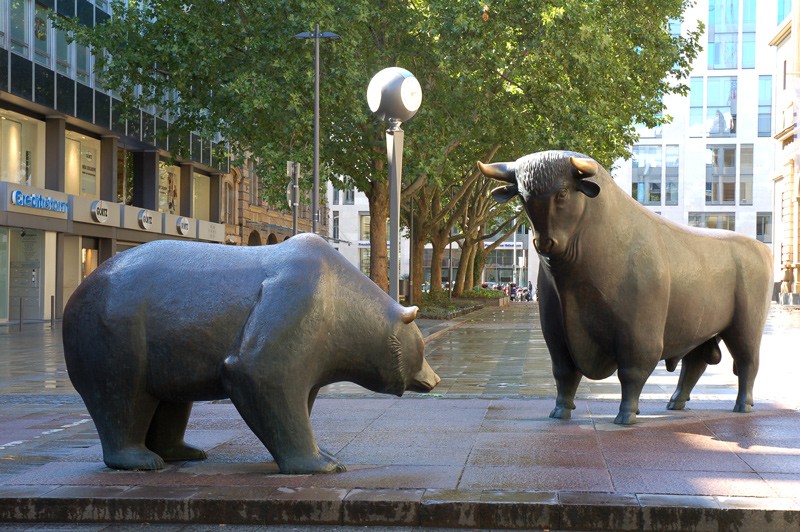In the face of ever-worsening wealth inequality, one solution for Malta (or elsewhere) could be a tax on wealth. Jonathan Firbank speaks to Dr Charmaine Portelli about why this idea is flawed, and yet, why this flawed idea might still be necessary for today’s world.
Continue readingRethinking Economic Progress
In today’s society, the pursuit of economic growth has become an unquestioned goal. Politicians and policymakers often use increasing GDP as a measure of progress without critically examining its implications. However, this prevailing approach needs reconsideration. Economic policies should prioritize serving societal interests rather than prioritizing growth for the sake of growth. It is time to redefine our understanding of well-being and explore alternative models that lead to a more sustainable and equitable future.
Continue readingPushing for Malta’s industrial renaissance
With all the cranes strewn across the Maltese landscape, it appears that the construction industry is one of Malta’s primary economic drivers. But there are other, less polluting ways of generating income. Dr Ing. Marc Anthony Azzopardi discusses MEMENTO, the high-performance electronics project that could pave the way for a much-needed cultural shift in manufacturing.
Continue readingInsurance industry roots

Everybody wants peace of mind. From the moment we lock the front door before going to work, to the second the car’s ignition turns off when we get back. Insurance makes that possible.
Insurance is one of the largest sectors of the Maltese financial services industry and a major pillar of its economy. Despite this importance, there is a research gap. Most historical records I referenced when looking into the history of insurance in Malta hinge on maritime history and historical accounts of bustling ports and the activity surrounding them.
My research aim was to initiate the first project actively chronicling the key contributors and events in Malta’s insurance industry. I started with methods used by the earliest inhabitants of the island, tracing its roots in maritime trade, followed by the emergence of more complex and sophisticated insurance services and products.
Reference to insurance in Malta can be traced back as early as 750 BCE, the time of the Phoenicians. The earliest known insurance contract I found was dated to 1524, around 12 years before the oldest contracts known prior to this study. Intra and extra-territorial socio-political, economic, and regulatory events have strongly contributed to the development of insurance and have forged it into the industry it is today.
Through a series of semi-structured interviews, backed up by findings from empirical literature and archival research, I made some key discoveries. For example, after the Knights of St. John settled in Malta, Maltese farmers fearing a Turkish invasion sought security (insurance) from their landlords through contracts. I also found that in the 1980s, a very specific insurance existed for racing horses. These valuable insights are being published by Emerald publishing (London).
Understanding the past’s lessons is the best way to prepare for the future.
This research was carried out as part of an M.A. in Insurance and Risk Management, Department of Insurance, Faculty of Economics, Management and Accountancy, University of Malta.
Author: Mark Lawrence Zammit
The circular economy and Malta
Our globalised economy has generated wealth and prosperity for millions of people around the world. Living standards have been raised to unprecedented levels. But this comes at a cost. The environment has suffered greatly, not only in terms of constant extraction of natural resources, but also at the hands of polluting processes and end-of-pipe waste.
Recognising that economies, and indeed our planet, have finite resources, the circular economy has become a popular concept among policymakers and stakeholders in recent years. The current linear ‘take, make, use, and throw away’ model of production entails substantial value losses and negative effects along the material chain. Because of this, we should ideally be designing and manufacturing products for continuous reuse and recycling, maximising resource efficiency, and minimising leakages and waste.
The appeal of the circular economy lies in its various environmental and economic benefits. Using secondhand materials and waste within business could cut costs, while their sale adds a potential revenue stream. The circular economy also offers new and vast business opportunities in areas such as product eco-design and product/material regeneration, all of which help create high-skilled jobs and investment in new technology.
The idea of the circular economy is particularly relevant to Malta, given its geographical circumstances, high import dependency, and lack of natural resources. Embracing the principles embodied within the circular economy concept would have an immediate positive impact on the environment while benefitting Malta’s long-term economic prospects.
However, we are still at the doorstep of circularity. Malta’s natural resource productivity fell by 7.6% between 2000 and 2015, with increased domestic material consumption outpacing economic growth. Waste management in key sectors like construction remains a major issue.
To encourage the shift from concept to the creation of circular economy business models, the University of Malta is part of the R2Pi Horizon 2020 project. Among other goals, it hopes to identify both market and policy failures that hinder the uptake of such models by business entities across Europe.
Author: Dr Jonathan Spiteri
R2Pi Horizon 2020: www.r2piproject.eu
This project has received funding from the European Union’s Horizon 2020 research and innovation programme under grant agreement No. 730378.
Making Tourism Work
Tourism has long been an integral part of the Maltese economy. But a big dose of change is sorely needed if we’re to keep the money coming in without selling our souls in the process. Julian Christopher Zarb explains why.
Systematic Failure, Persistence and Success – A Table of Early School Leavers
In Europe, around one in 10 students (18-24 years old) is an ‘early school leaver’. For Malta, it is one in five. A fifth of our local student population is neither in school, nor in training, and with less than five SEC exams under their belt, Malta’s public education investment (~6% GDP) is not seeing much fruit. Cassi Camilleri speaks to Prof. Carmel Borg about what is needed to abandon the antiquated system our communities are being marred by. Photography by Elisa von Brockdorff.
What can Malta learn from Singapore?
By Dr Andre Xuereb and Dr Edward Duca
Singapore is Asia’s success story. It has a landmass just over twice that of Malta but produces over 30 times its economic output. Singapore has invested heavily in quantum technologies, turning itself into one of the world’s leading industrial economies. Though poor in natural resources, Singapore’s investment in knowledge has resulted in it becoming one of the world’s healthiest industrial economies.Continue reading
The future of money?
Money has evolved hand in hand with society. Early civilisations exchanged goods, which were then replaced by precious metals, like gold and bronze that represented the value of other goods. This metal money was made efficient through banks. Banks kept a gold reserve issued to an owner against a certificate. These certificates became paper money. Today’s money revolution is digital. Words by Ryan Abela.
On Bulls and Bears
Hedge funds are pooled money that has few investment restrictions. The money usually comes from pension schemes or university endowments and their flexibility allows good hedge fund managers consistently net high returns. Hedge funds always beat the market, or so states economic theory. Simon Psaila (supervised by Mr Joseph Portelli) analysed markets from the 1990s up to the recent financial crisis finding a much more complicated scenario than is generally perceived.
The 1990s were a bull market, so called for having a consistently upward trend.
 In this confident atmosphere, it was found that hedge fund managers did not outperform other market indices, such as the Standard & Poor 500 — an index of 500 stocks of companies in the USA. The same was evident for the bull market of the mid 2000s. Only when the markets dipped into a bear market (downward trend) in the early 2000s did hedge funds perform better than other strategies. The reverse occurred during the recent recession starting in 2007, which proved problematic for hedge funds and many investors pulled out of the industry.Taken as a whole, this analysis shows that hedge funds do not consistently perform better than other strategies and depend on the market environment.
In this confident atmosphere, it was found that hedge fund managers did not outperform other market indices, such as the Standard & Poor 500 — an index of 500 stocks of companies in the USA. The same was evident for the bull market of the mid 2000s. Only when the markets dipped into a bear market (downward trend) in the early 2000s did hedge funds perform better than other strategies. The reverse occurred during the recent recession starting in 2007, which proved problematic for hedge funds and many investors pulled out of the industry.Taken as a whole, this analysis shows that hedge funds do not consistently perform better than other strategies and depend on the market environment.
This study was performed as part of a Bachelor of Commerce (Honours) at the Faculty of Economics, Management and Accountancy.










